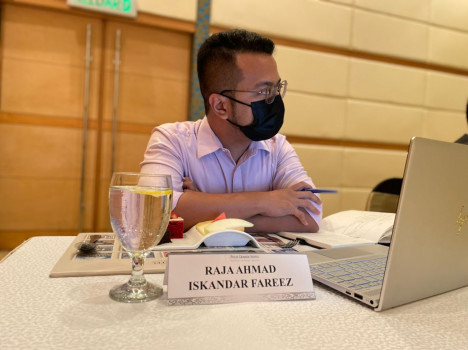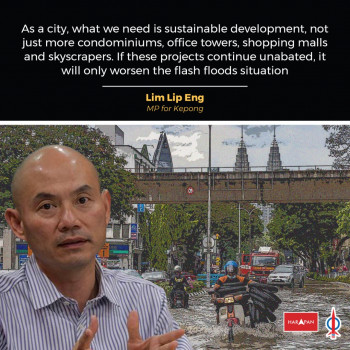by Richard Kamalanathan
On Feb 14, 2013, the The Principal District and Sessions Court convicted eight police personnel and sentenced them to undergo imprisonment ranging from six months to 10 years in a custodial death case at the Paramakudi town police station in December 2002.
Paramakudi, a town, comprising a population of slightly more than 100,000 people is a municipality in the state of Tamil Nadu. It is the political and revenue headquarters of Ramanathapuram district and is situated about 70 kilometres from the city of Madurai.
Karuppi, 50, a servant maid from Kattuparamakudi, had committed suicide in the lock up on the night of Nov 30, 2002 by hanging, after five days of illegal detention.
However the judge had said the accused, in a bid to cover up the “lock up death,” removed the body from the women’s cell and hung it in a VHF tower behind the station to give an impression that she had committed suicide unable to bear the humiliation after she was suspected in the theft case and on being let off after a day’s interrogation.
The case was about to be closed initially as suicide when human rights groups prominently People’s Watch of Tamilnadu appealed to the District Sub-Collector for a reinvestigation and was hence found to be a case of custodial death.
Principal District Judge W Sathasivam awarded the maximum of 10 years rigorous imprisonment (RI) to five of the eight accused, holding them guilty under Sections 306 (abetment of suicide), 201 (causing disappearance of evidence), 220 (illegal detention), 342 (wrongful confinement) and 323 (causing simple injuries) of Indian Penal Code (IPC).
Among the accused was M Sahul Hameed (59), the then Inspector of Police and who retired as Deputy Superintendent of Police (DSP) at Sattur a day after he was placed under suspension.
The case and judgement itself highlighted two important issues 1) the prolonged delay in handing out a judgement based on the degree of integrity of the police and judicial system in India in a bid to cover up the custodial death of a poor servant maid and the initial discharge of all those involved in the death of the victim and 2) the commitment of human rights group in a bid to expose the collusion of the police and the judiciary to cover up custodial deaths and of course the final outcome of justice per se though the victim was dead.
People’s Watch
People’s Watch is an Indian Human Rights NGO founded by a group of social activists in 1995 and is based in Madurai in Tamilnadu. Originally working solely in Tamil Nadu, People’s Watch recently moved into working at a national level with funding provided by the European Union and other donor agencies for the National Project on the Prevention of Torture in India. People’s Watch is widely recognised as the leading Human Rights organisation in India.
I had had the privilege and opportunity to be associated with one of its founders and its executive director Henri Tiphagne and his wife Cynthia back in 1985. He was then an advocate based in Madurai struggling to make ends meet. I was then returning home after being in The Hague for a master’s programme on labour studies.Victor Karunan, the deputy representative of Unicef now in Malaysia had invited me home for Christmas in New Delhi. After Christmas, we decided to go south together and put up with Henri and his family in Madurai. Henri hails from the Union Territory of Pondicherry and hence carries with him his typical French surname.
Since 1995, People’s Watch had had represented 929 human rights cases in India based on its annual report in 2009: Police torture (242), Prison Deaths (1), Extra Judicial Killings (7), Custodial Deaths (5), Violation against dalits (226), Violation against women (254), Corporal Punishment (79), Bonded Labour (19), Social Ostracisation (33), Medical Negligence (28), Personal Motivation (12). Incidentally police torture cases seemed to have been on the priority list for People’s Watch in the last 14 years.
No political will to end torture
The Asian Centre for Human Rights says from 2001 to 2010, the national Human Rights Commission (nHRC) recorded that 14,231 i.e. 4.33 persons died in police and judicial custody in India. This includes 1,504 deaths in police custody and 12,727 deaths in judicial custody from 2001-2002 to 2009-2010. A large majority of these deaths are a direct consequence of torture in custody. These deaths reflect only a fraction of the problem with torture and custodial deaths in India. Not all the cases of deaths in police and prison custody are reported to the nHRC.
The nHRC does not have jurisdiction over the armed forces under Section 19 of the Human Rights Protection Act. Further, the nHRC does not record statistics of torture not resulting in death. Torture remains endemic, institutionalised and central to the administration of justice and counter-terrorism measures. India has demonstrated no political will to end torture. The Asian Centre for Human Rights (ACHR) has consistently underlined that about 99.99% of deaths in police custody can be ascribed to torture and occur within 48 hours of the victims being taken into custody.
Maharashtra recorded the highest number of deaths in police custody with 250 deaths; followed by Uttar Pradesh (174); Gujarat (134); Andhra Pradesh (109); West Bengal (98); Tamil nadu (95); Assam (84); Karnataka (67); Punjab (57); Madhya Pradesh (55); Haryana (45); Bihar (44); Kerala (42); Jharkhand (41); Rajasthan (38); Orissa (34); Delhi (30); Chhattisgarh (24); Uttarakhand (202 ); Meghalaya (17); Arunachal Pradesh (10); Tripura (8); Jammu and Kashmir (6); Himachal Pradesh (5); Goa, Chandigarh and Pondicherry (3 each); Manipur, Mizoram and Nagaland (2 each); and Sikkim and Dadra and Nagar Haveli (1 each). According to provisional 2011 census, Maharashtra has a total population of 112 million in comparison to 199 million in Uttar Pradesh. That more people were killed in police custody in Maharashtra than Uttar Pradesh shows that torture is more rampant in that state.
India’s refusal to stamp out torture
India signed the United Nations Convention Against Torture (UnCAT) in 1997 and stated that ratification will follow soon. However, 14 years later, India is yet to ratify the UnCAT.
On May 6, 2010, the Lok Sabha (Lower House) passed an extremely weak Prevention of Torture Bill, 2010. It had only four operative clauses as it was “considered necessary to ratify the UnCAT and to provide for more effective implementation”. However, at the Rajya Sabha (Upper House), the Government had to refer the Bill to a parliamentary select Committee. The Parliamentary select Committee headed by Ashwani Kumar, the current Minister of state for Planning, presented a revised Prevention of Torture Bill, in December 2010 after calling for input from stakeholders and testimony from various experts including Asian Centre for Human Rights.
The revised Bill seeks to comply with the UN Convention Against Torture. Apparently, the Ministry of Home Affairs has objected to the many of the provisions recommended by the Parliamentary Select Committee and therefore, the new Bill has not been introduced in the parliament as yet. During the examination of India’s human rights records under Universal Periodic Review (UPR) on April 8, 2008, the UN Human Rights Council recommended India to “expedite ratification of the Convention against Torture”. India accepted the recommendation and informed the UNHRC that “the ratification of the Convention against Torture is being processed by Government of India”. However after three years India is yet to ratify while custodial deaths are still on the increase.
The Malaysian case
The Asian Human Rights Commission has declared that Malaysia abstained from voting to activate the Optional Protocol to the United Nations Convention Against Torture and Other Cruel and Unusual Treatment 1984. The optional protocol was adopted on Dec 18, 2002, with 127 countries voting in favour, 42 abstaining and 4 voting against it. The optional protocol provides a unique mechanism for international and national human rights experts to conduct regular visits to places of detention to check on the condition of detention and detainees, and to make recommendations in countries that are parties to the optional protocol. In Southeast Asia, only Indonesia, Cambodia and East Timor voted in favour of the optional protocol. Moreover, Malaysia has not ratified the Convention Against Torture.
The Peaceful Assembly Act 2012
The Malaysian government rushed through the Peaceful Assembly Bill at the Dewan Rakyat (House of Representatives, the lower house) on Nov 29, 2011. Instead of providing safeguards to the right to peaceful assembly, the bill poses harsher restrictions on the organisation and participation of peaceful assembly than existing laws of Malaysia. In particular, the bill prohibits street protests, which is defined in the bill as “open air assembly which begins with a meeting at a specified place and consists of walking in a mass march or rally for the purpose of objecting to or advancing a particular cause or causes.”
The right to peaceful protest is a key component of the right to peaceful assembly, as street protest is a form of assembly in procession. The prohibition of street protests will seriously violate the right to peaceful assembly and infringe the freedom of expression of the people in Malaysia.
The Peaceful Assembly Bill also forbids a person below the age of 21 years to organise an assembly, and a child below the age of 15 years to participate in an assembly. These provisions seem to be an attempt to prevent the younger generation from expressing their views and participating in public affairs. This is a serious violation of the rights to freedom of assembly and expression under the Convention of the Rights of the Child.
Moreover, protesters will be liable for fines of up to RM20,000 (US$6,300) for taking part in assemblies that violate the bill. In September, Prime Minister Najib Tun Razak announced plans to scrap several draconian laws, such as the Internal Security Act. While no concrete steps have been taken to fulfil such a pledge, the passing of the assembly bill into law will be a serious regression and violation of the Malaysian people’s right to freedom of peaceful assembly and freedom of expression.
The Asian Human Rights Commission called on the Malaysian government to withdraw the draft Peaceful Assembly Bill immediately, and enact laws that ensure the right to peaceful assembly conforming to international human rights standards.
The Rocket (Jan 16, 2013) claims while one unfair death is one death too many, 55% of deaths in police custody have resulted in no action been taken, according to statistics released by think tank REFSA. The Home Ministry in an official Parliamentary answer revealed that at least 156 people have died in police custody from 2000-2011.
Skepticism on official figures is rising as more cases of custodial deaths have surfaced. A previous United Nations Working Group on Arbitrary Detention visit to Malaysian prisons and detention centres reported that, between 2003 and 2007, “over 1,500 people died while being held by authorities”.Whereas, NGO Suaram estimates that every three days, two detainees die in custody.
Conclusion
The right to live as a citizen within the framework of the nation’s constitution is also an inborn right to protection; the institutions lawfully entrusted with the protection of human rights are imperatively protectors of the community and an individual’s right to seek redress for his or her misgivings or crimes and hence cannot be deemed to be a custodial right to torture or more so custodial deaths that cannot go on without judicial proceedings and judicial judgement. The right to live is also a primary right of birth be it citizens, non-citizens or refugees. Human rights groups need to wake up in the manner of People’s Watch and allow for the judiciary to prevail upon every custodial death in the country and the Paramakudi case may set a new judicial trend in that perspective.
____________________________________
* This article first appeared in Free Malaysia Today



